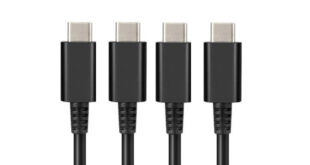The Advertising Standards Authority has dismissed a compliant made regarding the in-app-purchases in Gameloft’s Littlest Pet Shop.
The free-to-play game, available on Google Play, uses two currencies – Kibble and Bling. Players were tasked with housing and taking care of virtual pets and while some activities were perfectly possible without spending cash certain tasks are locked behind a paywall while others would be delayed unless IAPs were bought.
Details of the IAPs are buried away in the game’s Help section.
In order to collect features which cost a very large amount of kibble (like ‘the boutique’ priced at 600,000 kibble), players would be required to purchase bling with real money and convert it to kibble,” the ASA said.
We nonetheless accepted that some gameplay, such as collecting kibble or carrying out quests, could continue without spending bling. We also acknowledged that the information, which appeared on the game download page, set out that some gameplay would not be accessible for free; it indicated that users could ‘enrich their experience by purchasing game items with real money’.
If a user sought to obtain an item or carry out a quest for which they did not have sufficient bling, a notice appeared which stated ‘You’re out of Bling! You don’t have enough Bling. You can buy Bling for real money in the shop, or you can go back to playing’. Two click options were offered ‘Go back to playing’ and ‘Buy Bling with real money’.
We considered the language used in that notice did not force or compel users to spend real money to purchase bling and did not place additional emphasis on purchasing bling over returning to the game without purchasing bling. We also understood that this notice did not appear spontaneously and only appeared when users had attempted to carry out an action for which they did not have sufficient in-game currency.
We accepted that children were likely to be frustrated by the limited gameplay as the game increased, and were likely to want to increase the gameplay, in particular collecting pets, by spending bling, which required real money [but] because we did not consider the game contained a direct exhortation mechanism to buy products, we concluded that it was not in breach of the Code.”
Gameloft said in its response that Google Play offers parents the chance to implement spending controls and that the game would prior to being downloaded warn users that IAPs were offered.
It also stressed that the option to spend bling could always be skipped” and that numerous alert messages, the wording which was clear and legible”, were clearly presented when players attempted to make a purchase.
The ruling is a surprise seeing as the ASA in July ruled against EA’s Dungeon Keeper.
The ASA noted that the game software was available to download for free, and that it was possible to play the game without spending money,” the organisation noted at the time.
We regarded it as extremely likely that players would reach a position where they would be unable to take any further meaningful or progressive action in the game until a timer had finished or been skipped, and that these periods would become longer and more significant, and the cost of skipping increasingly higher, as the player progressed.
From the information available in the ad, players would expect the gameplay progression and their ability to advance to be unhindered by unexpected and excessively onerous delays, and we therefore considered that the length and frequency of these countdown events was beyond that which would be reasonably expected by players.
We consequently considered it likely that many players would regard the gameplay experience as unexpectedly curtailed and as a result would need to spend Gems in order to achieve the form of gameplay anticipated.”

 MCV/DEVELOP News, events, research and jobs from the games industry
MCV/DEVELOP News, events, research and jobs from the games industry



